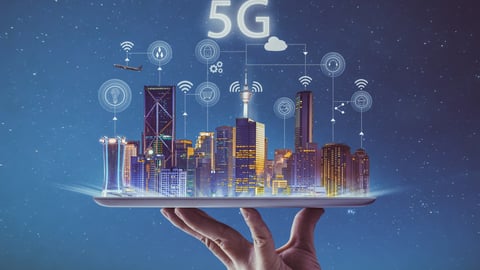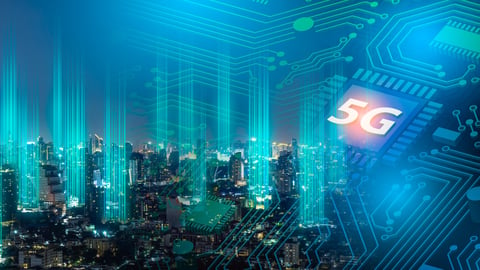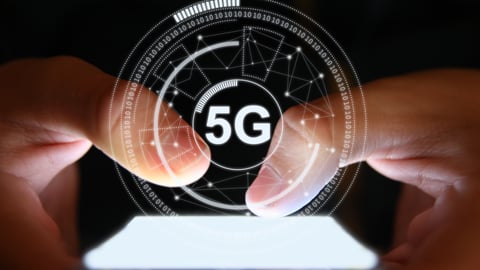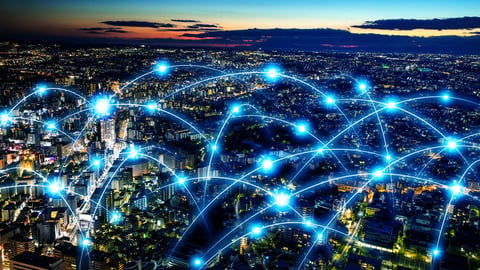How Hoteliers Can Use 5G to Drive Revenue
While upgrading the hotel’s network infrastructure to support 5G connectivity to improve the guest experience or back-of-house operations is a great goal, ultimately that upgrade is going to cost money. And if a hotel is going to spend money, its top executives are looking for a hefty return on investment. With ROI in mind, HT spoke with industry experts and asked them how hoteliers will be able to use 5G to drive revenue.
HOW 5G WILL HELP HOTELS MAKE MONEY
Providing 5G to hotel guests means they’ll be able to use their mobile devices all the time, whether that’s at the pool, gym, spa or golf course. For hotels, this could translate into significant revenue opportunities as it allows guests to quickly purchase hotel amenities on impulse, such as drinks by the pool, an additional spa service, or taking a lesson with a golf pro, says Jon Mykrantz, Vice President of Enterprise Sales at Wilson Electronics.
Tore Wick, Sr. Director, Travel & Hospitality, at digital consultancy Publicis Sapient, agrees and notes that using 5G to upgrade the hotel’s on-premise infrastructure will allow hoteliers to upsell guests much more effectively. For example, the hotel bar/restaurant can push its menu or daily specials via text to hotel guests. It may even get to the point where hotel guests walk down a hotel corridor with multiple digital screens displaying personalized messages to target that specific guest.
“The bottom line is that more engagement between the guest and the hotel will likely lead to broader use of ancillary hotel services, allowing hotel staff to focus on guest wishes rather than manual operational activities,” Wick adds. “Guests feel appreciated when hotels anticipate their exact needs in real-time, don’t mind paying extra for them, and will return the favor when they realize they won’t get the same value or appreciation at the hotel down the road."
In addition to increasing engagement between guests and the hotel, 5G could allow hoteliers to leverage virtual reality as a way to sell excursions or activities, says Jerri Traflet, Managing Partner Global Solutions, Verizon Business Group.
Plus, with the rise of the bleisure trend, 5G allows hotels to market themselves as a reliable remote work environment that can handle the business person’s every need, Traflet adds. This could allow hoteliers to market themselves to a new group of travelers or to increase their average daily rates.
Another way hoteliers can leverage 5G to drive revenue is by using it to link revenue models and booking systems to predict future demand and dynamically adjust pricing, explains Dr. Arthur Huang, professor within the Rosen School of Hospitality Management at the University of Central Florida. Plus, 5G networks will integrate current applications of IoT, big data, and cloud computing to generate new business models and new applications throughout the travel process.
And there is even the possibility that hoteliers could end up getting paid by telecom carriers such as Verizon, AT&T and T-Mobile to use the hotel’s 5G network. How so?
“5G private networks in and around hotels using shared CBRS spectrum can be shared to telecom carriers to provide their services on top of this infrastructure,” explains Abel Mayal, Senior Vice President 5G Technology and Marketing, Airspan.
Cathy Zatloukal, Co-Founder, 5thGenWireless believes it could go even one step further.
“Communication Service Providers (e.g., AT&T, Vodafone, Singtel, etc.) will be able to say to businesses: ‘I don’t want you just to connect your devices to my network, I want you to build your applications in my network, and I’m going to give you all of this capacity to help you do that,’” she explains.
For early adopters of 5G, hoteliers may be able to sell tickets – or monetize in some other way – live events (sports, concerts, etc.) by providing guests with an experience that makes them feel like they’re at the “real thing.”
This same principle could be applied to corporate events, says Shane O’Flaherty, Global Director: Travel, Transportation & Hospitality, Microsoft. “Creating next generation, immersive mixed-reality experiences could be potential revenue drivers for a hotel property.”
HOW 5G WILL HELP HOTELS SAVE MONEY
As the saying goes: “A dollar saved is a dollar earned.” Many within the industry believe that 5G technologies will allow hoteliers to save on a wide variety of operational costs.
“The more immediate benefit of 5G in hotels is less about driving revenue and more in its ability to reduce costs and create efficiencies for the property,” says Robert Mesirow, Partner and Connected Solutions/IoT Leader at PricewaterhouseCoopers. “Perhaps an early example of this would be new hotel builds not needing cabling for media and internet.”
Mike Rawson, CIO, citizenM Hotels agrees noting that when done well, "private 5G will require a lot less management and traditional investment — and it will also offer ESG benefits. For example, we estimate that it could reduce the use of copper in new buildings by roughly 500 to 800 pounds. The benefits of building a new hotel with only 5G are substantial in terms of capital and ongoing OPEX. My prediction is within a maximum of 3-5 years, private 5G will be standard in most big-city hotels."
And with the labor shortage facing the hospitality industry, 5G could enable hoteliers to make use of robotic technologies that would fill in the gaps for missing hotel staff.
“We are seeing robotics being leveraged for mundane cleaning tasks or room delivery to help fill the labor gap,” Traflet notes.
And don’t forget about using robots for security patrols and crowd analytics, notes Mesirow.
Additionally, IoT sensors and applications “powered by the massive connectivity of standalone 5G can help hotels become smarter, more automated and more connected,” says Michael Colaneri, VP of Retail, Restaurant & Hospitality Solutions, AT&T. How does this save hoteliers money?
“Hotels can take advantage of an increased network of sensors that monitor temperature, humidity, air quality, light, noise and water leaks and provide near real-time recommendations,” he explains. “For instance, a sensor could monitor for when water may be left running after a guest checks-in and autonomously alert staff to avoid a hefty utility bill.”
O’Flaherty agrees, noting that a 5G network will drive operational efficiency and cost savings by allowing hotels to create a digital twin or a smart hotel that can “manage your property’s energy output in a more efficient way or use predictive maintenance to analyze data to detect operational anomalies allowing hoteliers to fix small issues before they turn into larger ones and before the consumer encounters them.”
As hoteliers look to future-proof their tech stacks to be able to deliver a tech-centric guest experience, high-speed, high capacity network and low latency will become table stakes.
“5G provides the digital infrastructure to not only improve customer experience, but also reduce operational expenses and improve employee productivity while providing tremendous flexibility in responding to the ever-changing market and consumer set,” Traflet notes.











